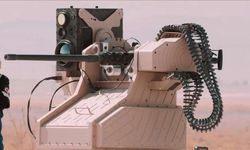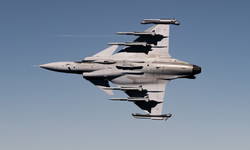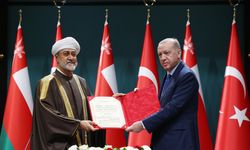Speaking to Liberty Times, Koo stated that the US has expressed interest in deepening coordination with Taiwan, particularly in developing reliable drone manufacturing networks. The partnership involves both private sector firms and the state-run National Chung-Shan Institute of Science and Technology (NCSIST), which has been actively engaged in drone research and development.
Koo highlighted that a delegation from the US Department of Commerce visited Taiwan in September, marking significant progress in bilateral discussions. He emphasized that the primary goal is to leverage international expertise to counter China’s dominance in drone component production.
"Once a drone is opened up, it is hard to avoid finding Chinese-made components," Koo noted, underscoring the need for alternative supply sources.
The defense minister also pointed out that advancements in drone technology, particularly in the US and allied nations, are expected to yield promising results. Taiwan is focusing on strengthening its domestic production capacity and integrating high-quality drone technologies into its defense strategy.
Following a visit by 26 US companies to Taiwan on September 23, additional American firms have reportedly engaged in discussions with Taiwanese counterparts. The discussions aim to foster cooperation on advanced drone subsystems, integrating Taiwan’s competitive manufacturing sector into the broader supply chain.
Koo clarified that the nature of US cooperation differs from the investment promotion efforts of the Asia Silicon Valley Development Agency, as NCSIST is conducting negotiations independently. The partnership follows two primary approaches:
Integration of Mature Drone Models: Taiwan’s advanced subsystems can be incorporated into existing drone platforms, benefiting from the country’s lower manufacturing costs and high competitiveness. Selective Adoption of Foreign Subsystems: By integrating established foreign drone technologies, Taiwan can expedite development while strengthening its local supply network. According to Taiwan News, sources familiar with the matter indicated that if NCSIST proceeds with next-generation military drone production, the institute could utilize this cooperation to integrate mature subsystems from non-Chinese sources, accelerating military deployment.Addressing the role of the Minxiong Aerospace and UAV Industry Park, Koo clarified that its primary function is research and validation rather than large-scale manufacturing. Instead, Taiwan aims to cultivate a competitive drone industry by encouraging innovation and strengthening its technological ecosystem.
A source noted that while Minxiong Park is part of a national policy initiative, its strategic development remains crucial. NCSIST is expected to support private companies in overcoming technical and production challenges, facilitating testing, simulation, and design improvements.
The park may also serve as a hub for production expansion, fostering collaboration between firms and enhancing Taiwan’s national drone industry.
In a related development, American Institute in Taiwan Director Raymond Greene stated in an interview with Liberty Times that, should the Russo-Ukrainian War reach a conclusion, the US is likely to shift its focus to Taiwan’s defense priorities. He also acknowledged the potential for increased US-Taiwan cooperation in dual-use drone production, further strengthening defense capabilities.









